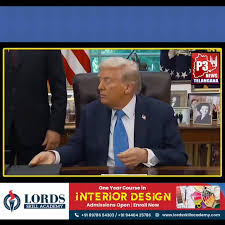Analyzing Donald Trump’s H1B Visa Policies and Their Impact

Introduction: The Importance of H1B Visa Policies
The H1B visa program has long been a cornerstone of the U.S. immigration system, allowing American companies to employ foreign workers in specialty occupations. Under Donald Trump’s administration, significant changes were proposed and implemented, raising concerns and debates about the future of skilled immigration in the United States. As global competition for top talent intensifies, understanding these policies is crucial for job seekers and employers alike.
Main Body: Changes Under Trump’s Administration
During his presidency, Donald Trump sought to tighten H1B visa regulations as part of his broader agenda to protect American jobs. In 2017, Trump signed an executive order aimed at overhauling the H1B visa system, calling for reforms that would prioritize American workers and potentially restrict the number of visas issued.
The administration implemented stricter scrutiny of visa applications, leading to increased rates of denials and Requests for Evidence (RFEs). Reports indicated that the U.S. Citizenship and Immigration Services (USCIS) denied 24% of H1B petitions in the fiscal year 2019, a notable increase compared to previous years. Furthermore, the Trump administration encouraged employers to pay higher wages for H1B positions, which significantly impacted the affordability of hiring foreign talent for many companies.
In addition to these regulations, the Trump administration also placed emphasis on reforming the lottery system that selects H1B visa applicants. They proposed changes that would prioritize applicants with advanced degrees or those already working in the U.S., a shift that drew criticism from many sectors reliant on the foreign workforce.
Conclusion: Implications for the Future
The implications of Trump’s H1B visa policies continue to reverberate through the job market and the immigration system as a whole. With the Biden administration taking office, there is anticipation of shifts in these policies, which may aim to restore more favorable conditions for H1B visa applicants.
As skilled labor shortages persist in many sectors, understanding the dynamics of H1B visa regulations will be essential for both international professionals seeking employment in the U.S. and for American companies looking to leverage global talent. The future of the H1B visa program remains uncertain, but its significance to the U.S. economy and innovation landscape cannot be overstated.


